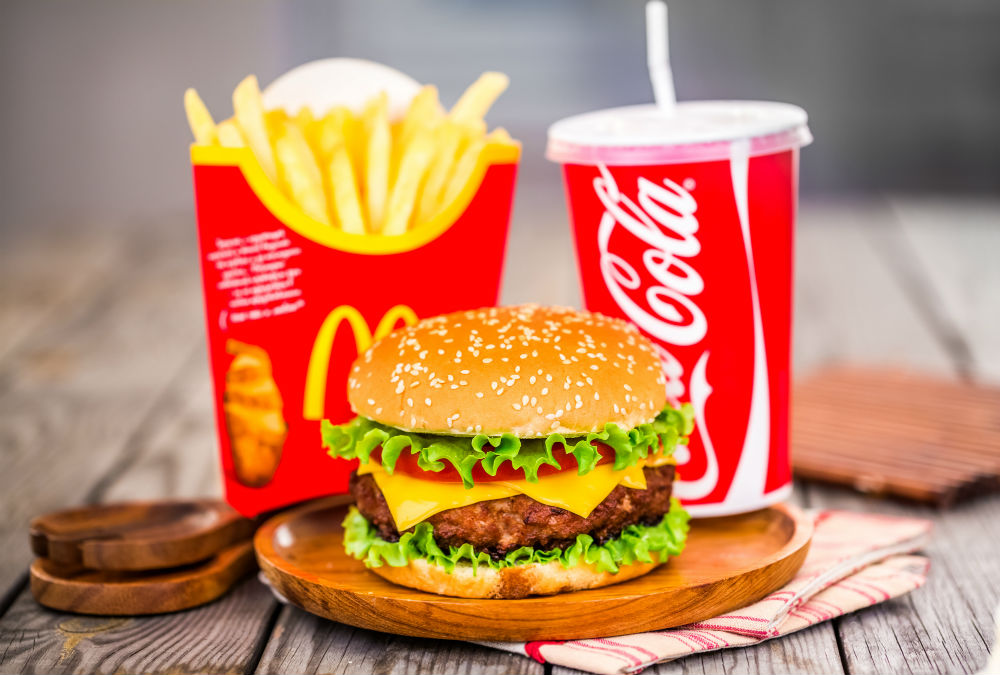Has the new year brought with it a resolution to change your eating habits? If you are like forty-three percent of all Americans, you’ve got healthy eating on the brain for 2020. Along with resolutions to be more active, save extra cash, lose weight, travel more, and de-stress, Americans want to make the shift towards healthy eating habits that will create lasting change. But where to begin? What do you eat, and when do you consume those calories? What should your macro breakdown be? Should you go keto or low-fat?
For many, eating healthy is synonymous with mass confusion. We are in information overload. Everyone is an expert, yet it feels like no one actually knows what to do.
While there is no authenticated statistic on how many science-backed research papers are published each year, we do know it is an overwhelming amount. The seemingly conflicting data from research coupled with armchair experts all pontificating their nutritional views can be a bit much. Innova Primary Care knows that with all the nutrition data and advice out there, it can be a challenge to make lasting change. We also know you want to live your best life, and this means that incorporating healthy eating habits is a must. But where do you start?

Nutrition shouldn’t be rocket science.
Over the last 20 years or so, access to information regarding nutritional science has become easily accessible to the public. From research papers to magazine articles, we are inundated daily with dietary advice. According to the PEW Research Center, more than half the US population is paying more attention to healthy eating compared to just 20 years ago. However, many say that they are not intentionally putting into practice what they learn. The general consensus among those surveyed is that the quantity and quality of food consumed is the real matter at hand.
Are you confused yet?
Given that there are so many diets on the market, think Keto, Paleo, LCHF, low-fat, vegan, etc., it is no wonder so many of us are left at a stalemate. Sometimes you have to dispell the myths to get to the heart of the matter. Let’s deconstruct some common beliefs about nutrition and simplify it.
Myth 1: A healthy diet means you have to eliminate a food group
It is a commonly held belief that to be healthy, you should forego one of the macronutrient groups (carbohydrate, fat, protein ). We call FALSE on this one. Depending on who you ask, some say you should eliminate carbohydrates all together to be healthy. Others say fat must go. We say, no way. Instead, opt for a healthy balance of carbs, fats, and proteins. We all need a healthy balance between the three macronutrient groups. Your macronutrient needs will depend upon your body type, activity level, and age. If you aren’t sure what you need, consider consulting with a registered dietitian (and not Google).
Micronutrients are vital for good health!
Myth 2: Only MACROS matter
It is easy to get caught up in how many macros you need. However, micronutrients matter to overall health. Think calcium, vitamin D, vitamin C, vitamin K, magnesium, potassium, and the like. Micros work at the cellular level, and they assist with almost everything that occurs within the body. Micronutrients are the vitamins and minerals necessary to keep your body healthy. They come from the foods we eat. Because our bodies do not create vitamins and minerals (for the most part), we need to consume a wide variety of healthy foods in order to get what we need.
Nutritionally speaking, you need both macronutrients and micronutrients to be at your best. But, what does that look like? Here is where nutrition becomes complicated for so many. Do you grab a heavily marketed “health food item” that boasts marketing terms like gluten-free, dairy-free, soy-free, vegan and hope for the best? For starters, incorporate a wide variety of fresh produce and lean protein into your diet. That’s not too challenging. In doing so, you will hit your macro and micro goals.
Myth 3: Eating healthy is hard
Making changes to your current eating preferences can be challenging, but it does not have to be hard. What do we mean by this? Well, choosing fresh fruits and vegetables over prepackaged items full of chemicals and preservatives may not tingle your taste buds at first, but it is possible. You just have to decide to make the change.
You do not have to make grand sweeping changes overnight either. This is where we see so many people experience failure. You do not have to throw out everything in your fridge and pantry and eat grass. Nope, make one small change at a time. Once you experience success with the small things, they really begin to add up. Over time, you’ve become a healthy eater!
Small changes lead to huge nutrition gains
Listen, there are choices you can make right now (yes, today) to make healthy eating a reality. Here are just a few ideas:
- Choose Water
- Include one vegetable at each meal
- Cut back on processed snacks
- Choose frozen fruits and veggies over canned (less sugar and sodium)
- Reduce your portion sizes
- Sit down for your meals
- Evaluate how you feel after eating
- Learn how to read food labels
- Make home cooking a family affair
- Enjoy treats in moderation
One small change at a time will lead to huge changes over time. Make sense? Nail your water goal and then add in an extra veggie at lunch. Once you’ve accomplished these small goals, cut back on your afternoon bag of chips or candy bar. Replace mindless snacking with intentional eating. You can do this!
Innova Primary Care is committed to changing healthcare from the inside out, and we know we are not the only ones. You have made a decision to become a healthy eater, and we can help you with this. If you have nutrition questions, we would love to provide you with assistance. We believe in you. We know that taking control of your health can be scary, but please know you are not alone. You’ve got a partner in Innova.




 About
About

 About
About About
About About
About
 About
About About
About

 About
About About
About About
About About
About











